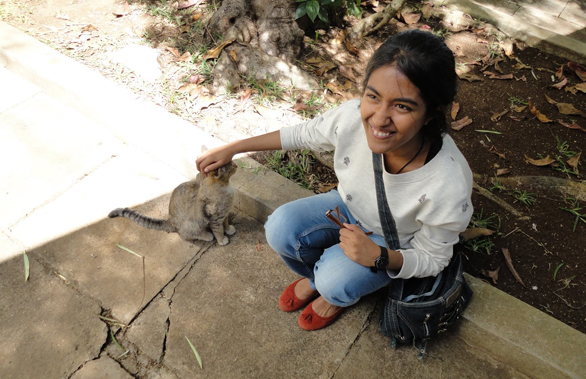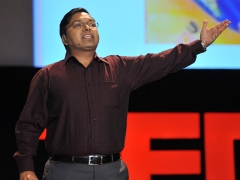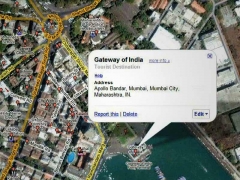 TED Talks are available in 102 languages, from Albanian to Vietnamese, thanks to the tireless work of our volunteer translators. So far, more than 10,000 volunteers have created nearly 45,000 talk translations — and today, the TED Blog brings you a Q&A with one of them. Here, meet French and Urdu translator Shadia Ramsahye.
TED Talks are available in 102 languages, from Albanian to Vietnamese, thanks to the tireless work of our volunteer translators. So far, more than 10,000 volunteers have created nearly 45,000 talk translations — and today, the TED Blog brings you a Q&A with one of them. Here, meet French and Urdu translator Shadia Ramsahye.
1. Where do you live? And what do you do by day?
I am from a place after which heaven was copied — Mauritius. (Mark Twain said it!) But I have been studying at the Sorbonne in Paris since 2009 — first computational linguistics, then communications. I am more of a night person though, and that’s usually when I translate.
2. What drew you to TED?
A friend of mine posted a talk about physics on Facebook. I didn’t get most of it, but I clicked on another video. Then another. Then another. And I was hooked. TED is now my daily dose of inspiration, that small kick of energy and enthusiasm that boosts me up for the day.
3. What was the first talk you translated and how did you pick it?
 Devdutt Pattanaik: East vs. West -- the myths that mystify
It was Devdutt Pattanaik’s talk about myths that shape how we conceive and perceive the world. As a child, I used to satisfy my voracious appetite for stories by reading Greek and Egyptian myths, and for the very first time, I was seeing how these stories mold our present and reality.
Devdutt Pattanaik: East vs. West -- the myths that mystify
It was Devdutt Pattanaik’s talk about myths that shape how we conceive and perceive the world. As a child, I used to satisfy my voracious appetite for stories by reading Greek and Egyptian myths, and for the very first time, I was seeing how these stories mold our present and reality.
4. What have been your favorite talks to translate? Why?
There are too many of them, but three is a good number, so here goes.
 Lalitesh Katragadda: Making maps to fight disaster, build economies
First, a fun one: Hillel Cooperman on Legos for grownups, because we can’t ever have enough of Legos.
Lalitesh Katragadda: Making maps to fight disaster, build economies
First, a fun one: Hillel Cooperman on Legos for grownups, because we can’t ever have enough of Legos.
A serious one: Lalitesh Katragadda on harnessing knowledge from the crowd for a more efficient world.
And a poetic one: Sarah Kay, because her spoken word poetry reminds me of the wittiness of Ghalib, the sensitivity of Aatish and the vivid imagery of Iqbal — my three favorite Urdu poets.
5. Which talk was the most difficult for you to translate and why?
All talks come with their own intricacies, but recently I found Tarig Hilal’s ode to a lost Sudan quite tricky to translate. He talks eloquently — his talk is a poem in prose and I strove to do it justice. Poems and songs are the most difficult to translate — it is hard to not mess up the form or corrupt the content.
6. What’s a phrase in your language that you wish would catch on globally?
“Dilo lor bred sonz.” It’s a phrase in Mauritian Creole, my native language, describing how water droplets roll down the taro leaf, without seeming to touch its surface. It’s a bit like the expression, “Keep calm and carry on.” Because we should always stand strong, no matter what.
Comments (4)